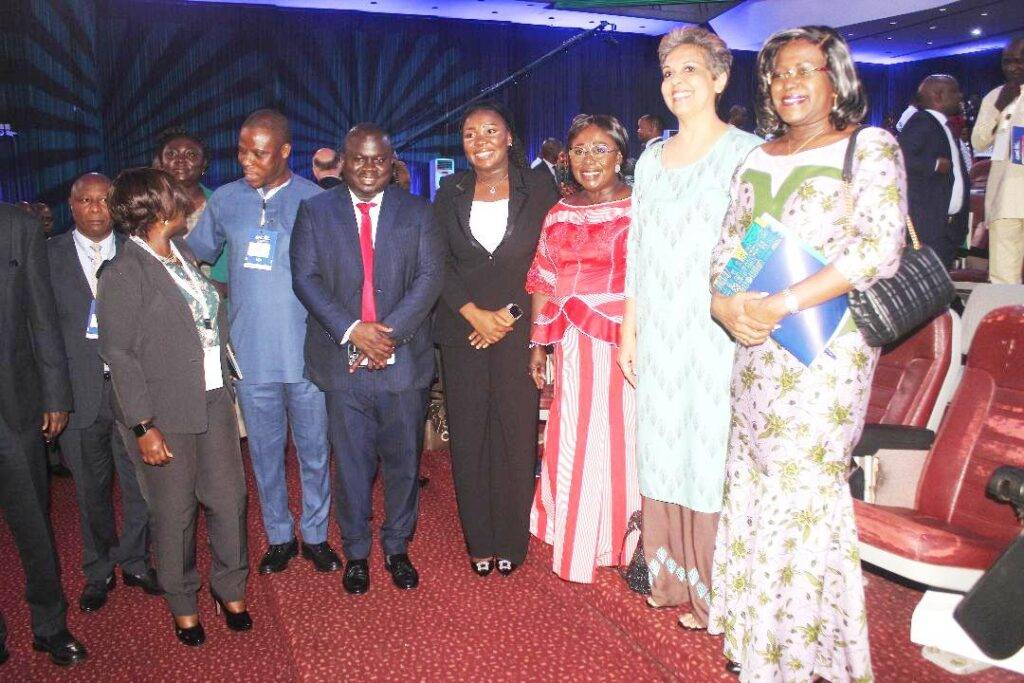Media practitioners in Africa have been challenged to prioritise advocacy on climate change and other environmental crises to support efforts to mitigate their impacts.
According to Akosua Frema Osei-Opare, Chief of Staff, Office of the President, the adverse effects of climate change required that the media take up its responsibility of informing Africans about the adverse effects of human activities and ultimately, the protection of the environment.

This, she said, was critical in influencing public opinion on environmental issues which could positively impact the larger society in combatting climate change and other environmental crises.
The Chief of Staff was addressing delegates of the African Media Convention (AMC), currently ongoing in Accra.
On the theme “Enhancing freedom, innovation, and environmental sustainability in a dynamic media landscape”, the event brought together media practitioners, political actors, academia and other stakeholders to reflect on the challenges and opportunities within the media landscape in Africa.
It is being organised by the Ghana Journalists Association (GJA) in partnership with the African Union, UNESCO, and International Fund for Public Interest Media (IFPIM) and the Ministry of Information.
“In the area of climate change, journalists play a crucial role in countering false narratives on climate change and environmental crises through proactive, accurate, and objective reporting. Journalistic integrity is therefore key to promoting a healthy information ecosystem,” Mrs Osei-Opare stated.
Citing the State of the Climate in Africa 2022 Report, she said, the impact of climate change including floods, and rising temperatures threaten the existence of Africans, as they continue to pose an ever-growing risk to a healthy environment, food security, biodiversity, natural resources production, and sustainable development.
“We as Africans, and the media in particular, have a special duty to reflect on the exercise of journalism and freedom of expression amid the global environmental crisis.
It is noteworthy, that climate change denials, have become increasingly untenable in the face of escalating environmental catastrophes occasioned by human activities. Thus, it behoves on the African media to accept its role in combating climate change and its attendant environmental crisis,” she noted.
She charged the media in Africa to be ambassadors of timely and accurate dissemination of information in safeguarding socio-economic development across the continent in the face of growing threat of misinformation and disinformation.
Beyond its public education mandate, she said, the media could also police important roles of the State, such as the development and enforcement of an effective legislative regime that guarantees environmental sustainability.
Mrs Osei-Opare urged policy makers, international organisations, media practitioners and other stakeholders to highlight the importance of reliable and accurate information in addressing environmental crises, particularly climate change, and its disproportionate impact on Africa.
She reiterated the need to strengthen collaboration between media organisations, civil society organisations, governments, and international bodies to promote and protect press freedom and freedom of expression as well as ensure sustainability of media practice in Africa.
President of GJA, Albert Kwabena Dwumfour, said there was the need for innovative approaches to enhance media freedom in Africa.
Despite Ghana’s improvement in the World Press Freedom index from the 62nd position last year to 50th this year, he said, there were critical challenges to be dealt with, especially the safety of journalists during the electioneering period.
Churchill Otieno, President, Africa Editors Forum, called for fair compensation mechanisms, including equitable revenue-sharing models and copyright reforms, to ensure that journalists were adequately rewarded for their contributions to democratic development.
BY CLAUDE NYARKO ADAMS
Source:
www.ghanaiantimes.com.gh
Source link

